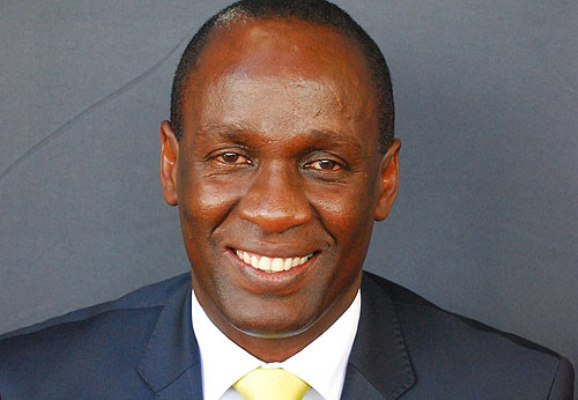Ramathan Ggoobi, the Secretary to Treasury
Government is reviewing the 12% excise duty tax that was imposed on internet data to ensure it isn’t distorting the growth of the ICT sector, the Secretary to Treasury, Ramathan Ggoobi, has revealed.
Ggoobi made the revelation on Friday during a workshop with journalists on the budget strategy for 2022/2023 at Hotel Africana, after journalists called for review of the tax because it was affecting their operations.
Moses Mulondo, President of Uganda Parliamentary Press Association (UPPA) told the Ministry of Finance that when the Over the Top Services tax commonly known as (OTT) that imposed a Shs200 daily charge on social media use of Twitter, Facebook was introduced, Uganda’s access to internet dropped from 44% to 34%.
“We now have the most expensive internet in the world. Our view is that either you reduce from 12% to 4% or you scrap it off because it is stifling the growth of the ICT sector yet this is the fastest growing sector in the world. In fact in the whole of the world, it is only Uganda and Zambia that have taxes that have taxes that limit access to internet and all progressive countries discourage taxes that limit access to internet,” said Mulondo.
In April 2021, the Ministry of Finance tabled before Parliament 11 tax bills and in one of the proposals was to amend the excise Duty and impose a 12% tax on each data purchase in replacement of the infamous OTT.
However, Ggoobi said the tax is being reviewed in light of pleas from society to have it reviewed, after the pandemic forced closure of schools and education studies are being conducted online.
“The taxation on internet, we are studying it, we are studying it because we want taxes which aren’t distortionary. If there is a distortion, in tax, definitely it is logical for it to be revised,” said Ggoobi.
If the 12% tax is reviewed, it will join the likes of the tax on gold that is being reviewed after the Performance of the Economy Report for September 2021 indicated that Government had lost over Shs503Bn earning in exports, with a big chunk of this loss attributed to drop in gold exports.
According to Government, exports in coffee tobacco and fish had increased, but those of gold had tremendously dropped following the introduction of the 5% level on each refined kilogram of gold and 10 charge on each kilogram of unrefined gold.





